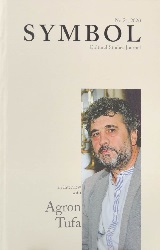Alegoria e ‘Kandidit’
The allegory of the ‘Candide’
Author(s): Anda KrasniqiSubject(s): Novel, French Literature, 18th Century, Theory of Literature
Published by: Bard Books
Keywords: satire; parody; allegory; fable; paradox; idea;
Summary/Abstract: In Voltaire’s Candide or Optimism, satire takes a symbolic meaning. The result of placing the characters in miserable destinies, is moralizing, where the aim is to show the inconsistency of the principle that whatever is, is right. The presence of suffering in human life reincarnates the Epicurean paradox where god’s benevolence is questioned, when we confront the misfortunes that befall on us. Voltaire, using this weapon, countered the philosophies of his contemporaries, that of Alexander Pope’s and Gottfried Leibniz’s, and the latter’s philosophy appears in Candide parodied in the character Panglos, who at one side insists that we live in the best of all possible worlds, and on the other side, has the obscure reality which proves the opposite. And with a touch of humor it shows the flaws of this consolatory philosophy.
Journal: SYMBOL
- Issue Year: 2020
- Issue No: 21
- Page Range: 69-74
- Page Count: 6
- Language: Albanian

